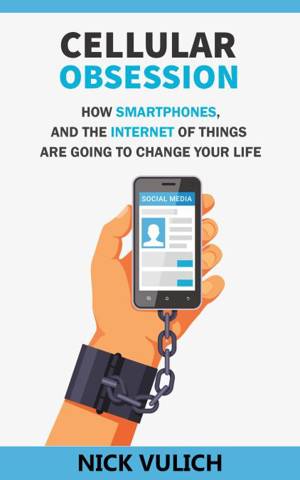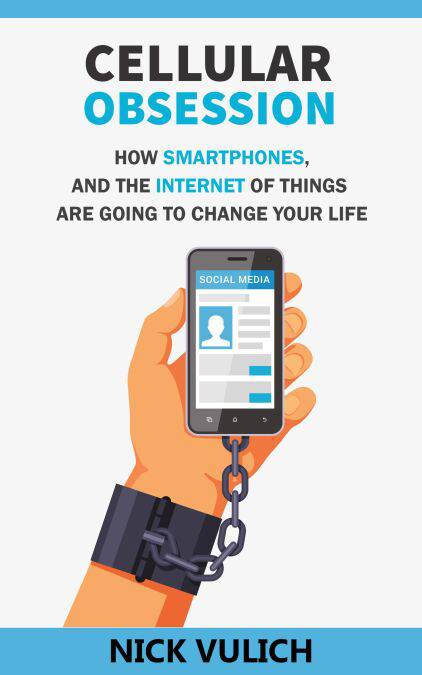
- Retrait gratuit dans votre magasin Club
- 7.000.000 titres dans notre catalogue
- Payer en toute sécurité
- Toujours un magasin près de chez vous
- Retrait gratuit dans votre magasin Club
- 7.000.0000 titres dans notre catalogue
- Payer en toute sécurité
- Toujours un magasin près de chez vous
Cellular Obsession: How Smartphones, and the Internet of Things Are Going to Change Your Life EBOOK
Nick VulichDescription
Mobile Will Change Everything - Again
George Orwell's paranoid vision of 1984 is here. Only it isn't Big Brother who is watching us. It's Big Data.
Here's the deal.
Google, Apple, and Microsoft are all attempting to do the same thing. They are trying to get your device to learn enough about you so it can anticipate what you want to do next and provide the appropriate information just as you need it. Rafe Needleman described it best in an article he authored for Yahoo Tech. He said artificial intelligence will be somewhat like "auto correct." Your smartphone will "auto suggest" what you should do next, based on your history. To do that, your smartphone would draw on your prior browsing history, and what it knows about you from your GPS location services, your text messages, and your emails.
The hard part is getting your phone to think contextually.
As human beings, we can put things in context, based on what's happening now. For example, let's say you are sitting in your house.You smell something burning and see smoke coming from the kitchen. The next thing you know the smoke alarm goes off. Most people can put two and two together to determine something is wrong. They understand that maybe the house is on fire. A normal person is either going to check it out, or dial 9-1-1, and run out of the house screaming "fire!"
Here's a tougher one.
Let's say; you have an appointment set to replace your windshield at 9:15. The Glass Barn texts you to say they are running an hour behind schedule. Is that okay? Or would you like to reschedule? That text is buried among several other messages. Most of them are junk. A coupon for a dollar off a sandwich, free drinks at the bar down the street, and a contest entry. Which messages should your phone hide, or display? Most people would say the message from the Glass Barn should be displayed first because it's more urgent. But, how do you teach a chunk of metal and memory chips to make that decision?
That's the real challenge.
When contextual intelligence works, it's amazing. The problem is that right now your phone gets it right less than a third of the time.
Google is working hard to improve on that number. Their future depends on getting it right. Time Magazine ran an article by Victor Lukerson a while back, titled, "Google Searches for Its Future." The premise was it's a whole new world out there. Google became the "go to" search engine because of their excellence in desktop search but mobile has changed everything.
If Google wants to survive, they need to reinvent themselves. The future is mobile, and Google has determined the only way they can survive in this new reality is to focus in on"voice search" and "Google Now."
Want to know more? Buy the book. Lean why cellular is the future of everything.
Spécifications
Parties prenantes
- Auteur(s) :
- Editeur:
Contenu
- Langue:
- Anglais
Caractéristiques
- EAN:
- 9781386877059
- Date de parution :
- 05-08-17
- Format:
- Ebook
- Protection digitale:
- /
- Format numérique:
- ePub

Les avis
Nous publions uniquement les avis qui respectent les conditions requises. Consultez nos conditions pour les avis.






